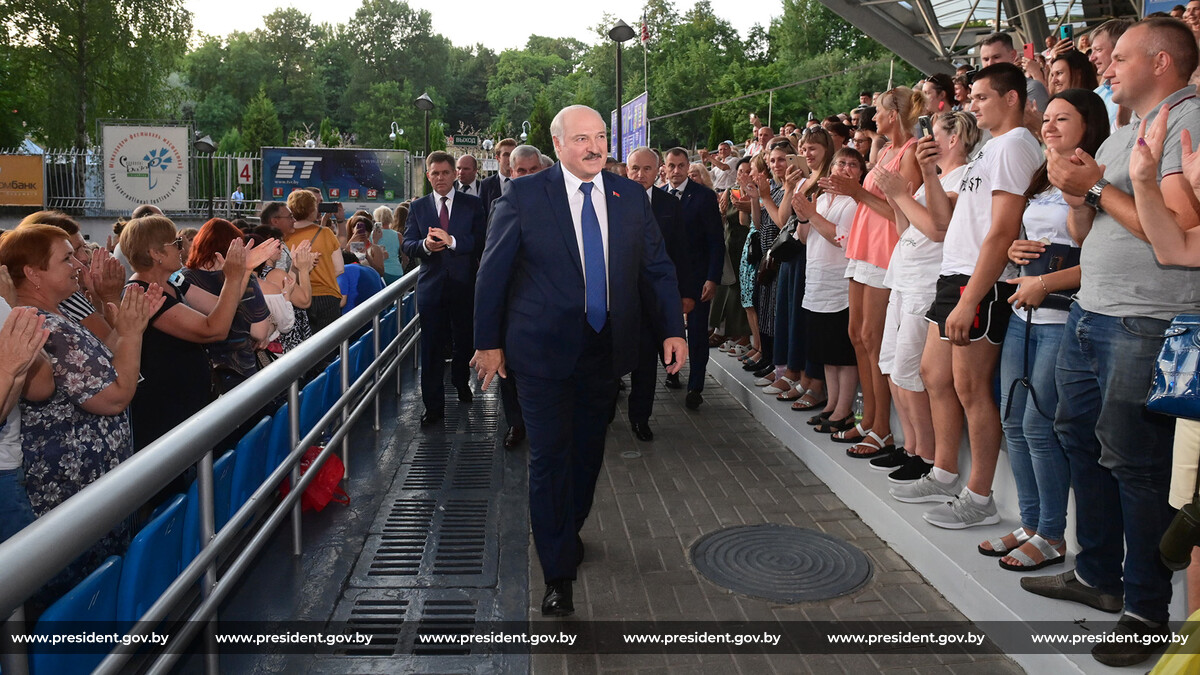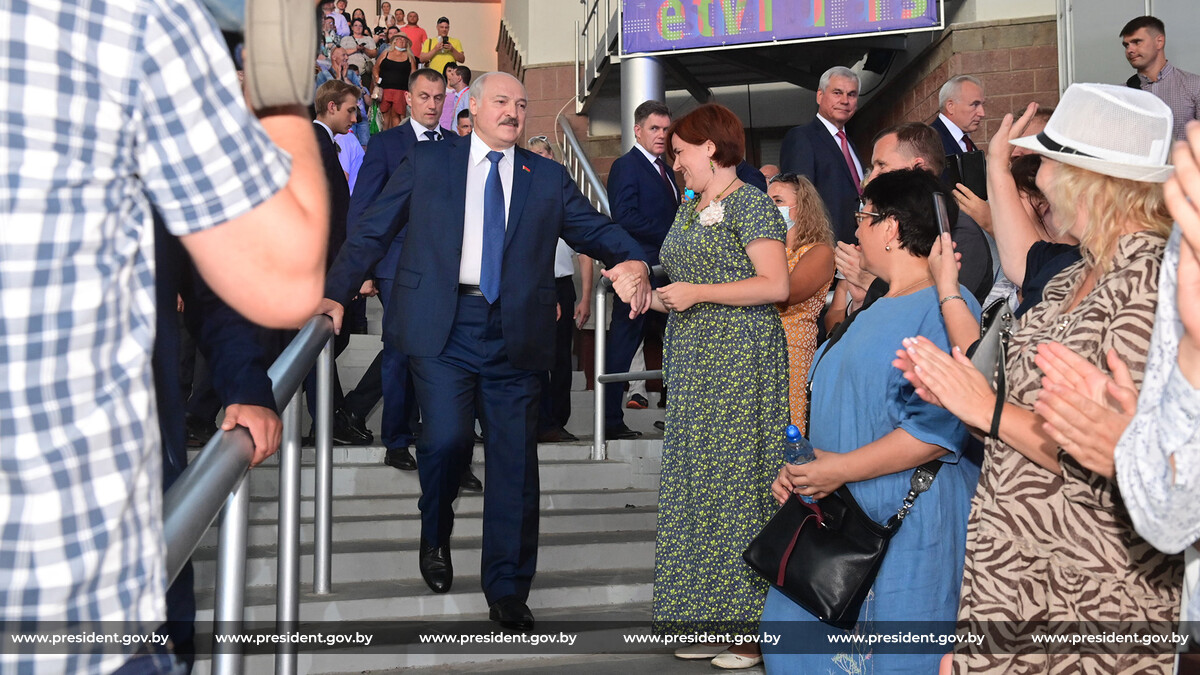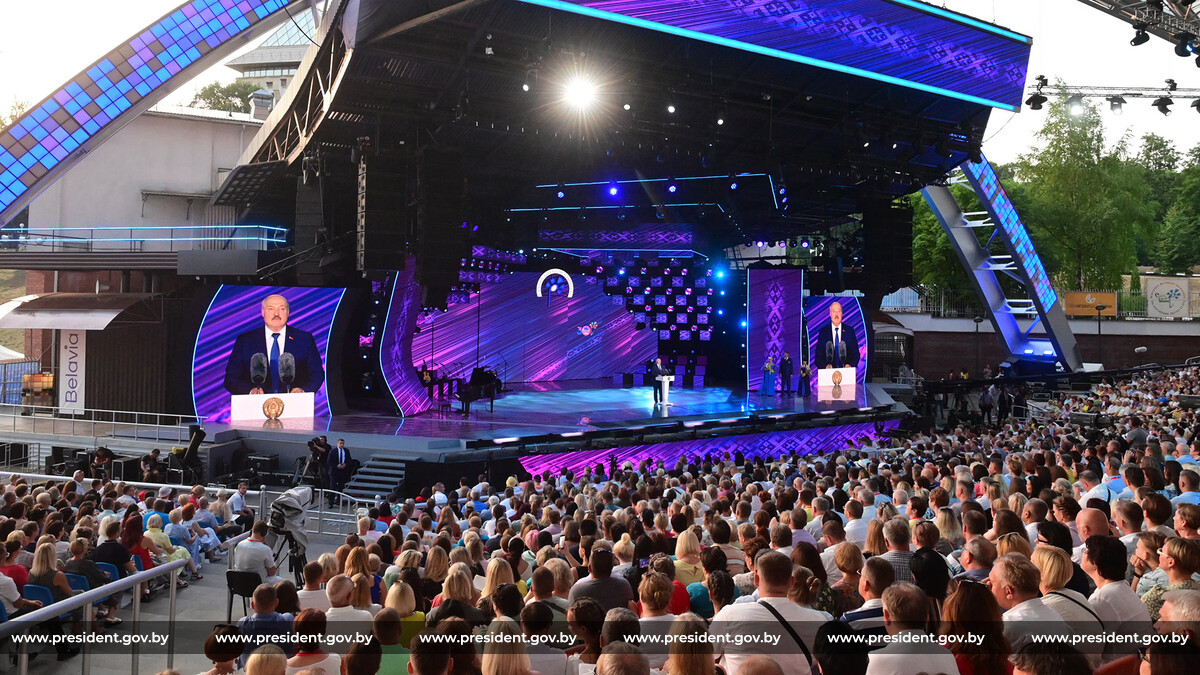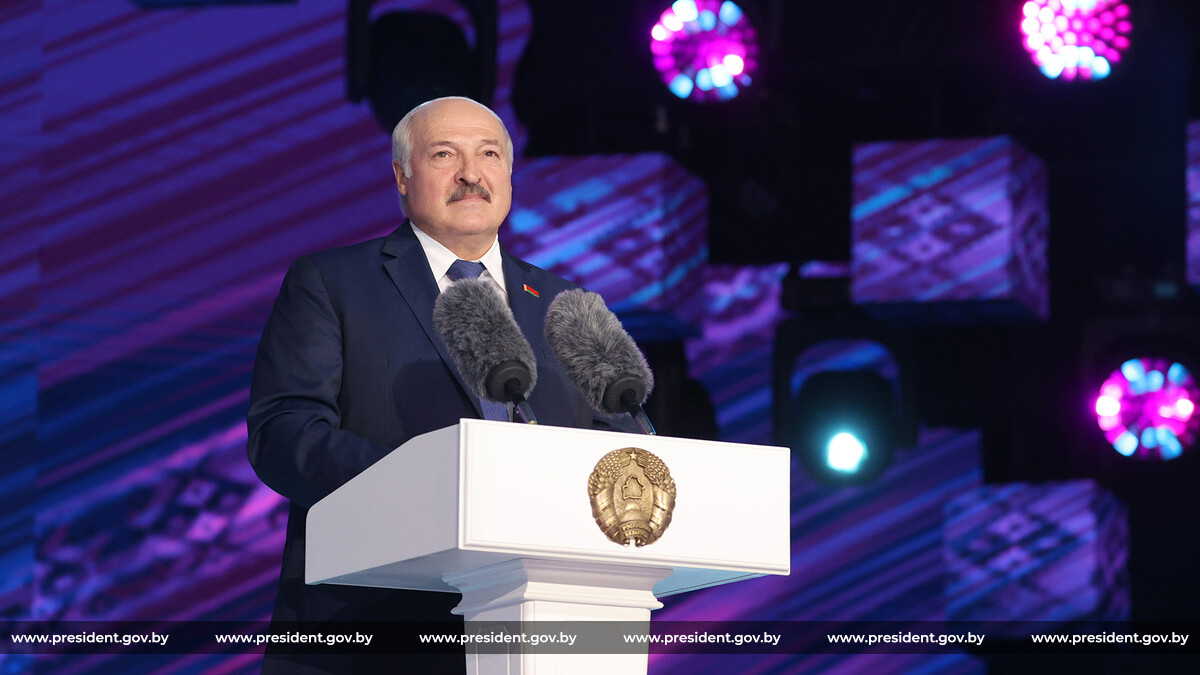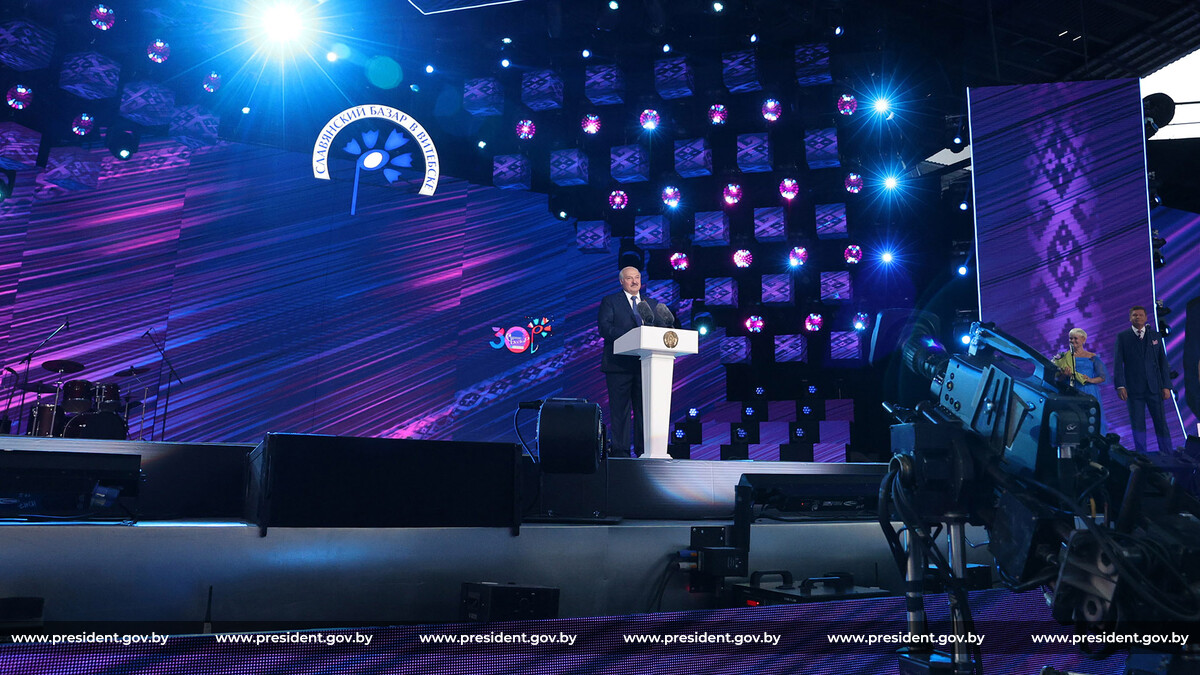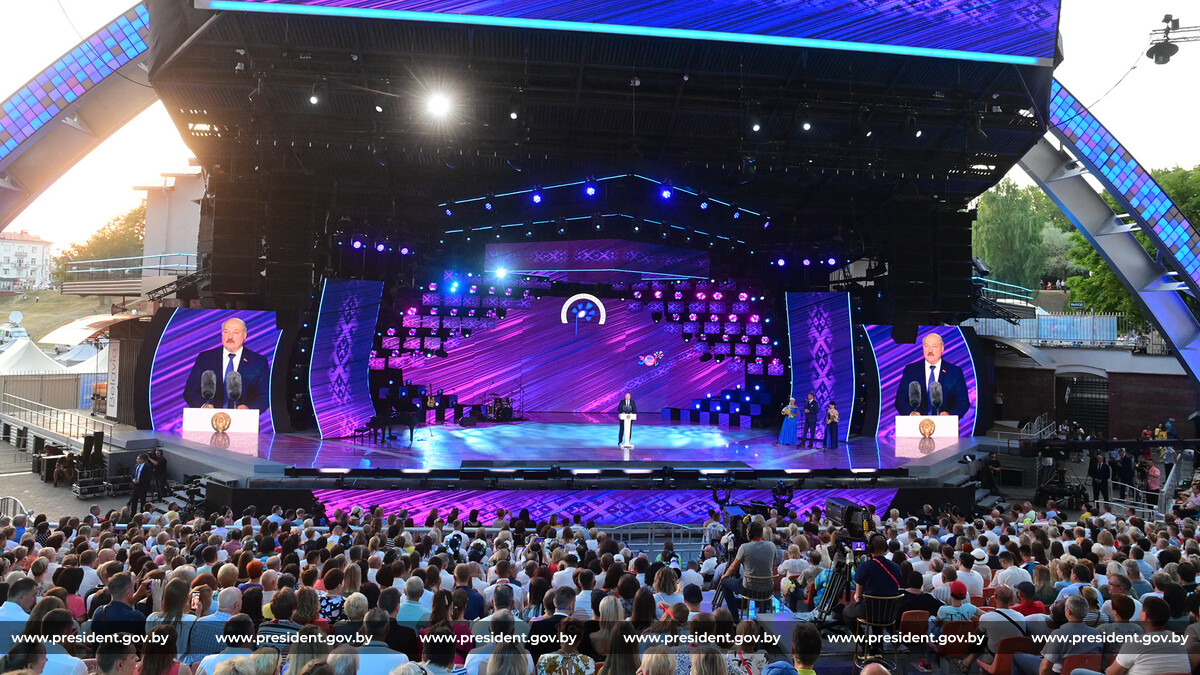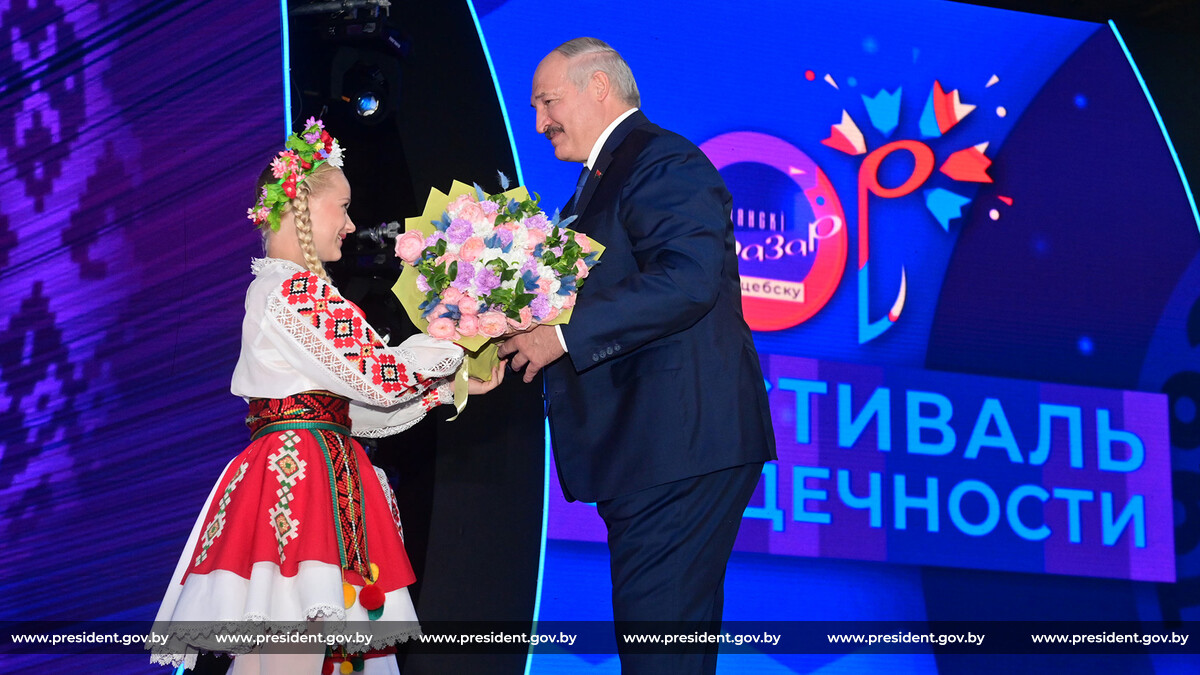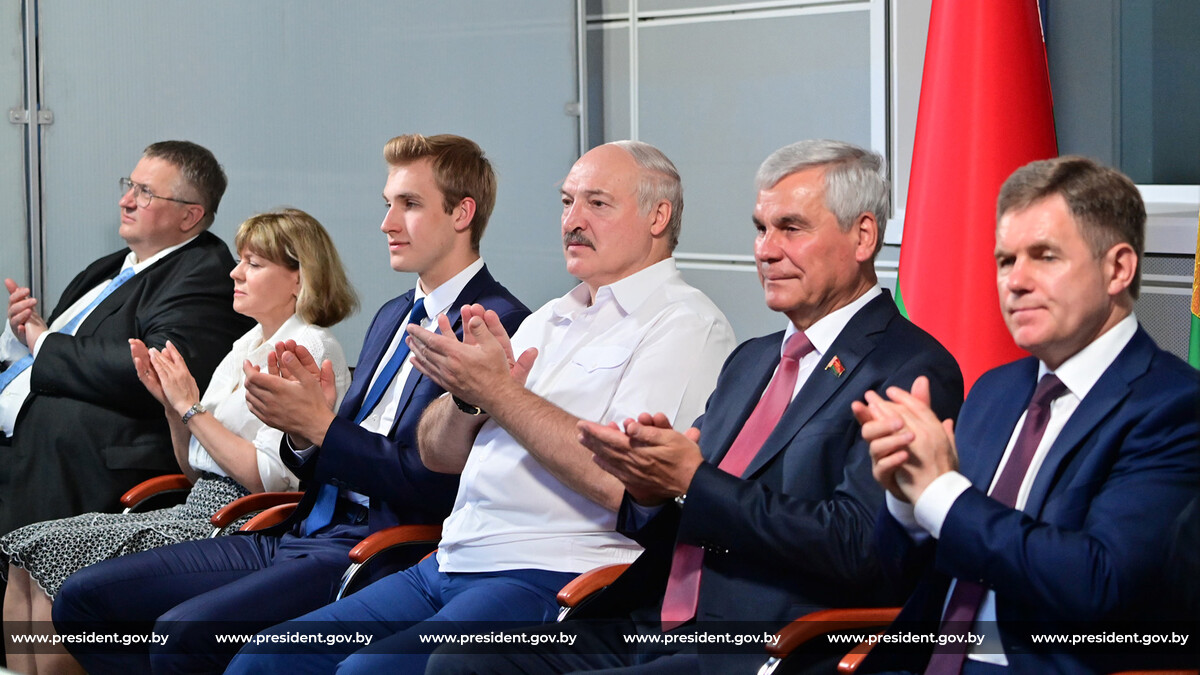Opening of the 30th edition of the International Festival of Arts Slavianski Bazaar in Vitebsk
- 14
- 13:04
Slavianski Bazaar has fitted into the cultural events calendar of many nations, Belarusian President Aleksandr Lukashenko said at the opening ceremony of the 30th edition of the International Festival of Arts Slavianski Bazaar in Vitebsk on 15 July.
“Our festival became the first large-scale cultural event after the collapse of the Soviet Union. When thousands of threads connecting fraternal peoples were torn, no one could even imagine what role was prepared for the Slavianski Bazaar festival. Three decades ago we embarked on our journey “through art to peace and mutual understanding” and we managed to inscribe our festival on the calendar of cultural events of many nations, to bring together like-minded people from more than 70 countries,” Aleksandr Lukashenko said.
The head of state noted that when new Slavic and Eurasian states emerged on the world map, when a new era began in the history of different nations, people who were confused and cut off from each other desperately needed hope that spiritual and fraternal bonds would be retained. This hope was given by Slavianski Bazaar. “It gave everyone confidence in the future, the foundation of which was laid by Soviet traditions of inter-ethnic peace,” the president stressed.
“For Belarusians, the festival has become one of the symbols of the formation of an independent state. Indeed, we had difficult times. But we retained Slavianski Bazaar. And despite all the difficulties, the festival went on,” Aleksandr Lukashenko said.
The president stated that a whole generation of Belarusians grew up together with the festival, the event took root in the land that can rightfully be called the cradle of Belarusian national culture. “The Vitebsk land, the birthplace of Chagall, Pen, Azgur, Bykov and Fradkin, has become a big draw for creative people in the 21st century,” the head of state said.
Aleksandr Lukashenko noted that today the festival in Vitebsk is a very reputable international competition of performing arts. “I would like to emphasize that this is a competition of singing skills, and not of show technologies to boost one’s image and ego. The festival runs in the name of people, friendship and unity, because nations are strong and can overcome any obstacles only when they stand together. And no matter how hard some people lay themselves out criticizing the state support and my personal support of Slavianski Bazaar, we defended it and never regretted that we hold this wonderful festival every year,” the president said.
The head of state noted that performers, painters, artisans coming to the festival from various countries and continents always speak the same language - the language of friendship, art and creativity. “Therefore, the threads of the Slavianski Bazaar festival continue to bind people in the world that has not been so divided for a long time as it is now - and not only by the pandemic and hybrid wars,” Aleksandr Lukashenko said.
The president noted that while some states are building fences separating people with barbed wire, Belarus has opened its door to friends.
Having a ticket to the festival, citizens of 74 countries can visit Belarus without a visa. “And the friends of Belarus have never needed an invitation,” he added. “We are always glad in our Belarusian way to welcome guests and we say it over and over again: come and see our country - we have something to be proud of and something to pleasantly surprise you,” the Belarusian leader said.
Aleksandr Lukashenko noted that the stage of the Summer Amphitheater in Vitebsk remembers the great performers like Vladimir Mulyavin, Lyudmila Zykina, Igor Luchenok, Edita Piekha, Michel Legrand and Andrei Petrov. It was here where a number of artists, including Taisia Povaliy, Ruslana, Petr Elfimov, Alena Lanskaya, Dimash rose to stardom.
“Every year participants of the junior song contest take their first steps here – these children will shape the future of our countries. After all, in the end, all this is needed to preserve the continuity of generations, to illuminate the path for the creative youth, to show the best examples, but at the same time to give space to new ideas and directions. And we believe that our youth will write many more bright pages in the history book of the festival, and will continue what we have begun. Let it be in a new format, even in a language we do not understand, but with the same great purpose - ‘through art to peace and mutual understanding’,” the president emphasized.
According to the president, the festival has brought together all Slavic peoples, peoples of the former Soviet Union republics, participants and visitors from more and more countries, which could not but irritate those who do not want the unity of these countries. “Our festival annoys them, and it is not about dictatorship or about our country being different from other states. New methods of dividing peoples have appeared. They are trying to divide us, therefore we must take every effort to preserve this great festival, which has been bringing joy to people for three decades. Addressing those who do not want people from other states to see Belarus with their own eyes and not through the prism of deceitful media and Telegram channels, we must say: come to us, the door is open. Those misled and deranged should look at us,” the Belarusian leader added.
Aleksandr Lukashenko went on saying that against all the odds three brotherly East Slavic languages are spoken on the stage of the Summer Amphitheater in Vitebsk: Belarusian, Russian and Ukrainian, as well as the language of international communication. “Please, speak any language, we do not shut anyone up. But the building blocks of our communication are three beautiful languages of courageous Slavic peoples. As you can see, there have been attempts to rock the boat in our countries in order to rip, tear us apart. They are trying to tear off our dear Ukraine away from this unity,” the head of state said. He emphasized that the participation of Ukrainian artists and a Ukrainian host in Slavianski Bazaar suggests that nothing will come out of these attempts. “We will be together like before. And these great languages have been spoken and will always be spoken, because they are part and parcel of these peoples,” he stressed.
“We, the people who are in attendance, first of all Belarusians, keep using this cultural platform to call on states and nations to build bridges, not walls, to preserve Slavic brotherhood, strengthen friendship with all states of the world,” Aleksandr Lukashenko said.
The president noted that special awards and prizes are only a small part of the recognition of the contribution that people of art make to strengthen ties between fraternal peoples. Speaking about the people who shaped the history of the festival, the head of state named playwright Aleksei Dudarev, People’s Writer of Belarus Ivan Shamyakin, People’s Artists of Russia and Belarus Alexei Petrenko and Vladimir Gostyukhin, conductor Mikhail Finberg, People’s Artist of the Soviet Union Mikhail Savitsky, composer Alexandra Pakhmutova, poet Nikolai Dobronravov and, of course, the first director of the festival, Rodion Bass.
“These people - and this is their distinctive feature - never tried to adapt to the political or other situations, they did not resort to publicity stunts, but did a lot to promote art, peace and friendship,” Aleksandr Lukashenko said.
“I want to sincerely thank performers and organizers, local residents and visitors to Vitebsk - the whole big family of the festival – for the opportunity to feel this amazing atmosphere of festivities and national unity, like it was 30 years ago. Happy anniversary, Slavianski Bazaar!” the president said.
